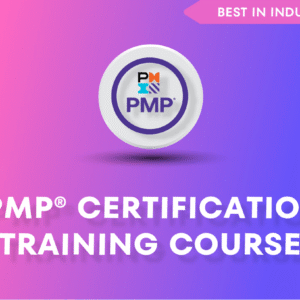If you’ve ever wondered why some websites rank higher than others on Google, the answer often lies in technical SEO—specifically in two crucial elements: crawlability and indexability. Whether you’re managing a personal blog or working with an SEO agency in the UK like Perfect Digitals, understanding these foundational aspects is essential to getting your content seen online.
In this beginner-friendly guide, we’ll break down what crawlability and indexability are, why they matter for SEO, and how to ensure your web pages are optimized for search engines.
What Is Crawlability?
Crawlability refers to a search engine’s ability to access and read the content on your website. Search engines like Google use bots (often called “spiders” or “crawlers”) to scan your website, follow links, and gather information about your pages. This process is called “crawling.”
If your site is not crawlable, the bots can’t access it—and if they can’t access it, they can’t evaluate it, which means your content won’t show up in search results.
Common Crawlability Issues:
-
Broken links
-
Poor internal linking
-
Improper use of robots.txt files
-
Server errors (like 500 internal server errors)
-
Redirect chains and loops
If you’re unsure whether your site is crawlable, working with an experienced SEO agency in the UK like Perfect Digitals can help identify and resolve technical barriers.
What Is Indexability?
Once a crawler has accessed a page, the next step is indexing. Indexability is the ability of a search engine to include your page in its index. If a page is indexed, it can appear in search results.
Even if your site is crawlable, it doesn’t guarantee indexability. Some pages are blocked from being indexed through meta tags or HTTP headers—either intentionally or by mistake.
Common Indexability Issues:
-
Meta tags like
noindex -
Canonical tags pointing to the wrong URLs
-
Duplicate content
-
Thin or low-quality content
-
Blocked pages in the robots.txt file
Ensuring your important pages are indexable is vital. Agencies like Perfect Digitals, a top-rated SEO company in the UK, often conduct technical audits to verify indexability and ensure search engines are indexing the right pages.
Why Crawlability and Indexability Matter for SEO
Without crawlability, your site is invisible to search engines.
Without indexability, your site can’t rank—even if it’s crawlable.
Together, crawlability and indexability form the foundation of any effective SEO strategy. They determine whether your pages are discoverable and eligible to show up in search engine results pages (SERPs). This is why many businesses turn to a professional SEO agency in the UK like Perfect Digitals to manage their technical SEO.
How to Improve Crawlability
Here are some actionable tips to make your website easier for search engines to crawl:
1. Create an XML Sitemap
An XML sitemap acts as a roadmap for search engines. It lists all the important pages on your site and helps crawlers find them more efficiently.
2. Optimize Internal Linking
Make sure every page on your website is accessible through at least one internal link. This not only improves crawlability but also spreads link equity.
3. Check Your Robots.txt File
This file tells search engines which pages they are allowed to crawl. Be careful—blocking important sections by mistake can prevent indexing.
4. Fix Broken Links
Use tools like Google Search Console or Screaming Frog to identify and fix broken links, which can disrupt crawling.
5. Ensure Fast Load Times
Slow-loading pages can prevent bots from fully crawling your site. Optimize images, enable browser caching, and use a reliable hosting service.
How to Improve Indexability
Once your site is crawlable, you need to make sure it’s indexable:
1. Avoid Noindex Tags on Important Pages
Check your HTML headers and meta tags to make sure important content isn’t marked as noindex.
2. Use Canonical Tags Correctly
Canonical tags should point to the main version of a page to prevent duplicate content issues. Misuse can lead to indexing the wrong page—or none at all.
3. Create Quality Content
Thin or low-quality content often won’t get indexed. Focus on creating valuable, in-depth content that answers user intent.
4. Submit Your Sitemap to Google Search Console
This tells Google which pages you want indexed and helps you monitor the indexing status of each one.
5. Audit with SEO Tools
Tools like Ahrefs, SEMrush, or Google Search Console can help detect indexability issues early. At Perfect Digitals, we use these tools regularly to ensure client websites are optimized for both crawlability and indexability.
How Perfect Digitals Can Help
As a trusted SEO agency in the UK, Perfect Digitals specializes in helping businesses improve their online visibility through technical SEO. From crawl diagnostics to fixing indexation problems, our team ensures your website is easily found and properly represented in search engine results.
Whether you’re launching a new site or trying to boost traffic to an existing one, our experts provide tailored solutions that align with Google’s best practices.
Final Thoughts
Crawlability and indexability may sound technical, but they are fundamental concepts that determine whether your website can be discovered and ranked by search engines. If you ignore them, even the best content in the world won’t show up in Google.
By understanding how these processes work—and partnering with a professional SEO agency in the UK like Perfect Digitals—you can remove hidden barriers and open the door to better search visibility, more traffic, and higher rankings.
Perfect Digitals is Exhibiting at SME XPO 2025 at ExCeL London!






